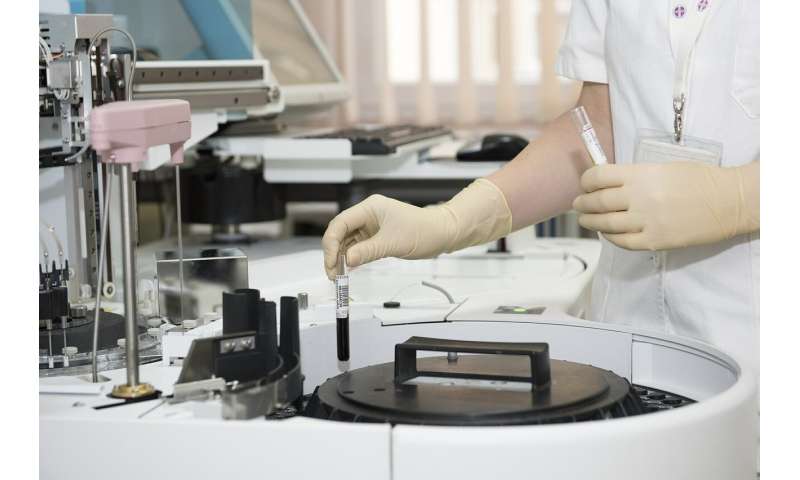Health sector, Big Pharma spent big on lobbying for COVID-19 funding, analysis finds

To date, Congress has authorized roughly $3 trillion in COVID-19 relief assistance—the largest relief package in history. With more COVID relief money on the way, a new study led by two Brigham Young University business professors finds these newly available funds led to a significant surge in health sector lobbying activity, especially within the pharmaceutical industry.
The research, publishing Wednesday, Aug. 12, in the Journal of General Internal Medicine, finds the lobbying expenditures ($248.4 million) and new lobbyist registrations (357) of the health sector represented nearly a fourth of all lobbying activity, across all industries, in the first quarter of 2020.
“This is like sharks to blood, or bees to honey, if you prefer a milder metaphor,” said study author Bill Tayler, an accounting professor in the BYU Marriott School of Business. “Congress is giving out a lot of money, so the lobbyists are swarming. Lobbying activity levels are typically fairly stable, so when you see jumps like this, it’s a big deal.”
According to the analysis, health sector lobbying spending increased more than 10% in Q1 of 2020 while non-health sector increased only 1%. Meanwhile, the number of new lobbyists registered in the health sector increased a staggering 140% while non-health sector registrations increased only 63%.
The BYU researchers, in collaboration with colleagues from Johns Hopkins University, Columbia University and the University of Cincinnati, found that across all segments of health sector lobbying, the biggest lobbying increases came from the pharmaceutical industry. Indeed, 16 of the top 30 healthcare organizations in lobbyist expenditures were pharmaceuticals.
For example, Novartis International increased their lobbying expenditures by 259% this year, AbbVie Inc. increased theirs by 155% and Biogen Inc. increased their expenditures by a whopping 344%. The organization with the highest lobbying expenditures by far was Pharmaceutical Research and Manufacturers of America (PhRMA), a non-profit trade association largely sponsored by pharmaceutical companies, spending $11.5 million in the first quarter of 2020.
“This is the largest stimulus bill in history,” said study coauthor John Barrick, a fellow accounting professor at BYU and expert on lobbying policy. “It’s important to follow the money. Dollars spent on lobbying influence the allocation of funds and, right or wrong, I think that’s what people need to know.”
The data shows Big Pharma has had a very loud voice as Congress has tried to allocate funds to small businesses, the unemployed, healthcare and more.
Overall, the top 30 healthcare organizations (16 of which were pharmaceutical organizations) spent almost $100 million on lobbying in Q1 of 2020, which represented a 55% increase in lobbying spending over Q4 of 2019. The authors said the results of the study illustrate just how much the health sector and others are willing to invest to influence Congress’ appropriation and allocation of funds.
Source: Read Full Article
